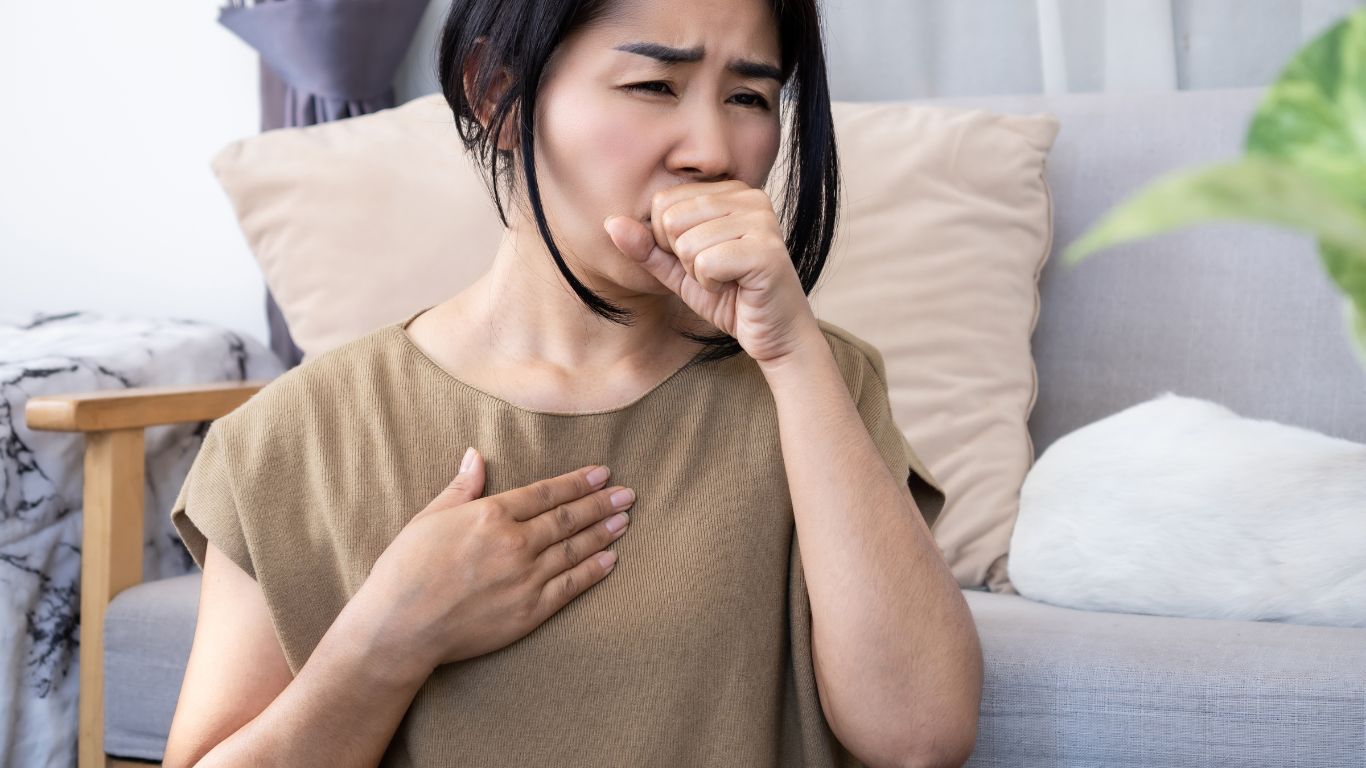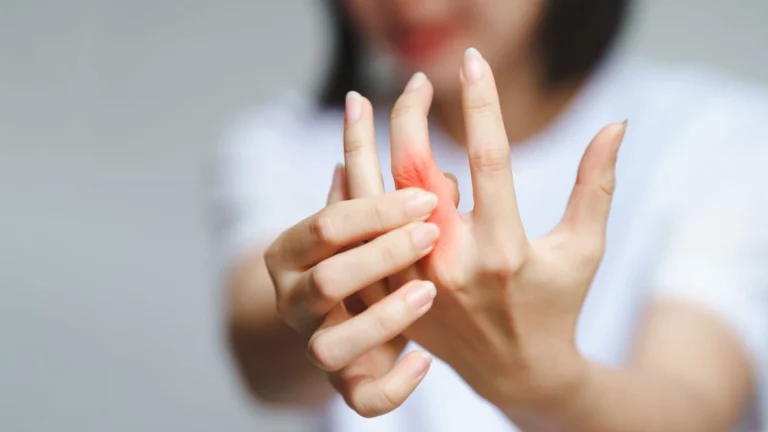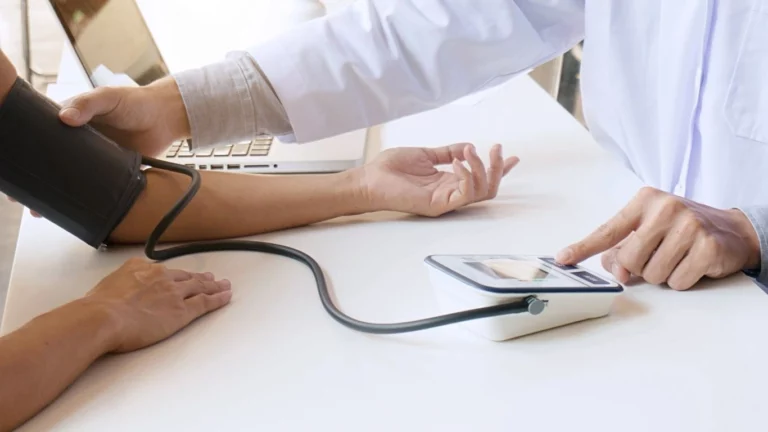How to Reduce GERD Symptoms Quickly: Simple, Effective Solutions
If you’re dealing with GERD (Gastroesophageal Reflux Disease), you know it’s more than just a little heartburn every now and then. It’s a constant struggle that can really mess with your daily life. But here’s the thing—there are ways to reduce GERD symptoms quickly, even in the middle of a flare-up. As someone who specializes in digestive health, I’ve seen firsthand how small changes can make a huge difference in comfort and quality of life. Whether you’re a long-time GERD sufferer or just starting to notice symptoms, this guide will help you understand how to ease those symptoms fast and take control of your digestive health. Let’s dive in!
What is GERD and How Does It Affect You?
Before we get into quick relief strategies, let’s take a step back and talk about GERD for a second. GERD is a chronic condition where acid from the stomach flows backward into the esophagus. This is usually because the lower esophageal sphincter (LES), the muscle that keeps stomach acid from traveling up, doesn’t function properly. As a result, you might experience symptoms like:
- Heartburn
- Regurgitation (acid backing up into the throat or mouth)
- Chest pain
- Dysphagia (difficulty swallowing)
- Persistent cough or hoarseness
It’s not just an annoying problem—it can really take a toll on your quality of life, affecting everything from eating habits to sleep. And trust me, I’ve seen how frustrating it can be when you’re dealing with those constant flare-ups. But don’t worry—there are ways to reduce GERD symptoms quickly and get back to feeling like yourself.

1. Adjust Your Diet for Fast GERD Relief
One of the first things I always recommend to my patients when they ask how to reduce GERD symptoms quickly is to tweak their diet. You’d be surprised how much what you eat (and drink) can affect your GERD. The key is to avoid foods and beverages that can trigger reflux while incorporating foods that are easy on your digestive system.
Foods to Avoid for GERD Relief
Some foods are known to relax the LES, making it easier for acid to flow back up. These are usually the ones that cause that burning sensation in your chest. If you’re looking to reduce GERD symptoms quickly, it’s best to steer clear of:
- Citrus fruits (like oranges, lemons, and grapefruits)
- Tomato-based products (including pizza, pasta sauces, and ketchup)
- Spicy foods (they can irritate the lining of your esophagus)
- Fried or fatty foods (which take longer to digest and can increase acid production)
- Caffeine and chocolate (both relax the LES, leading to reflux)
- Alcohol (which not only relaxes the LES but also irritates the esophagus)

GERD-Friendly Foods to Try
On the flip side, there are foods that are gentler on your system and can actually help reduce symptoms. For quick relief, try incorporating these into your meals:
- Oatmeal (it’s soothing and great for absorbing excess stomach acid)
- Ginger (a natural anti-inflammatory that can help with digestion)
- Bananas (they’re low in acid and won’t trigger heartburn)
- Leafy greens (like spinach and kale, which are alkaline and help neutralize stomach acid)
- Non-citrus fruits (apples, pears, and melons are all great options)
- Lean proteins (like chicken, turkey, and tofu)
2. Keep Your Portion Sizes in Check
Sometimes, it’s not just what you eat but how much you eat. Overeating can put a lot of pressure on your stomach, which can force acid to flow back into the esophagus. So if you’re looking for a quick fix, try eating smaller meals more frequently throughout the day instead of three large meals. This can help keep things moving in your digestive system and prevent that uncomfortable feeling of acid rising up.
Why Smaller Meals Matter
When you eat large meals, your stomach has to work harder to digest the food. This leads to increased acid production, which increases the chances of reflux. Smaller, balanced meals, on the other hand, are easier to digest and put less strain on your stomach. Plus, eating smaller meals can help keep your metabolism stable, which is crucial for long-term digestive health.
3. Elevate Your Head While Sleeping
If you’ve ever had GERD flare-ups that seem to be worse at night, you’re not alone. Lying flat can cause acid to flow back into your esophagus, making those painful symptoms even more intense. A simple trick to reduce GERD symptoms quickly at night is to elevate the head of your bed. Raising your head by about 6–8 inches can help gravity do the work of keeping acid in your stomach, where it belongs.
How to Elevate Your Bed
If you’re not sure how to go about elevating your bed, there are a few options:
- Use a wedge pillow under your upper body to raise your head.
- Adjust the legs at the head of your bed with wooden blocks or an adjustable bed frame.
- A more affordable solution: Place a couple of pillows under your head (but make sure you don’t elevate just your head—your torso should be elevated too).

4. The Power of Herbal Remedies for Quick GERD Relief
If you’re like me, you’re probably always looking for natural remedies that can help manage your health, especially when it comes to something as persistent as GERD. Herbal remedies can provide fast relief from GERD symptoms, and there are several that I personally recommend to my clients who want to avoid medications as much as possible. These remedies have been used for centuries and are a great way to help reduce inflammation, soothe the digestive tract, and get some quick relief from heartburn and acid reflux.
1. Ginger Tea
Ginger is a powerhouse when it comes to digestion. It helps reduce inflammation and can speed up the digestion process, making it a perfect ally in the fight against GERD. I’ve seen many patients find relief by sipping on fresh ginger tea after meals or during a flare-up. It’s incredibly easy to make—just steep a few slices of fresh ginger in hot water, and you’ve got yourself a soothing, anti-inflammatory beverage.
- Why it works: Ginger has natural anti-inflammatory properties that can help calm your stomach and reduce acid reflux.
- How to use it: Drink ginger tea after meals or whenever you feel symptoms coming on.

2. Chamomile Tea
Chamomile isn’t just great for winding down at night; it’s also a fantastic option for GERD sufferers. It can help reduce stomach acidity and promote better digestion. I often suggest chamomile tea to my clients who experience GERD flare-ups before bedtime, as it can soothe the digestive tract and help prevent nighttime reflux.
- Why it works: Chamomile has anti-inflammatory properties and can promote relaxation, helping reduce reflux at night.
- How to use it: Drink a cup of chamomile tea 30 minutes before bedtime to help with nighttime symptoms.
3. Licorice Root
Licorice root has been shown to have a protective effect on the stomach lining and esophagus. It can help prevent stomach acid from irritating the esophagus, which is great for preventing heartburn. However, be cautious with licorice root if you have high blood pressure, as it can increase blood pressure in some people. I’ve seen it help many people find relief from GERD symptoms when taken in moderation.
- Why it works: Licorice root soothes the esophagus and helps prevent acid from irritating the lining.
- How to use it: Use deglycyrrhizinated licorice (DGL) supplements to avoid potential side effects from the glycyrrhizin in regular licorice.
5. Managing Stress to Reduce GERD Symptoms Quickly
Here’s something that not everyone immediately connects to GERD, but stress can have a huge impact on your symptoms. Stress doesn’t just make life harder in general—it can actually trigger GERD flare-ups by increasing stomach acid production and relaxing the LES. Over the years, I’ve found that managing stress is one of the most underrated strategies when it comes to reducing GERD symptoms quickly. And no, it doesn’t always mean you have to spend hours in meditation or yoga (though, those are great). Sometimes, just small changes in your daily habits can make a big difference.
How Stress Affects GERD
When you’re stressed, your body goes into fight-or-flight mode, releasing hormones like cortisol that can increase acid production in the stomach. This can exacerbate your symptoms, leading to more acid reflux, heartburn, and even nausea. Plus, stress can affect your eating habits (hello, stress-eating), leading to poor food choices that can trigger reflux.
Quick Stress-Reduction Tips
If you’re looking for quick ways to calm down and ease your GERD symptoms, try these techniques:
- Deep breathing: Take a few minutes to practice deep, slow breaths. This can help trigger your body’s relaxation response, which can lower acid production.
- Mindful eating: Eating slowly and being present while you eat can reduce stress on your digestive system and prevent overeating.
- Take breaks: If you’re feeling overwhelmed at work or at home, step outside for a quick walk or take a 10-minute break to clear your head.

6. The Importance of Staying Hydrated
Now, I know it sounds basic, but staying hydrated is crucial for keeping GERD symptoms under control. Drinking enough water throughout the day helps to dilute stomach acid and flush it through your system. It also helps maintain a healthy pH level in your stomach, which can help reduce the likelihood of acid reflux. In my experience, people often underestimate the power of good hydration when it comes to digestive health.
How Water Helps with GERD
Water helps by flushing excess acid out of your system and can temporarily dilute the acid in your stomach. It also aids in the digestion of food, which can reduce the chances of food just sitting in your stomach and causing reflux. Plus, if you find yourself experiencing heartburn, a simple glass of water can sometimes help put out the “fire” of acid that’s causing discomfort.
- Why it works: Staying hydrated helps dilute stomach acid and promote better digestion.
- How to use it: Aim for 8-10 glasses of water a day. If you’re dealing with a GERD flare-up, sipping small amounts of water throughout the day can also help ease symptoms.

7. Medication and Antacids for Quick GERD Relief
Now, while lifestyle changes and natural remedies are great for reducing GERD symptoms quickly, sometimes they need a little help from medications. When you’re dealing with persistent or severe GERD, certain over-the-counter (OTC) medications can provide fast relief. In my practice, I often recommend these medications as a temporary solution while addressing the root causes of GERD with long-term strategies.
1. Antacids
Antacids are often the first line of defense when you feel that familiar burn in your chest. These are the classic medications like Tums, Rolaids, or Maalox that you can grab at any pharmacy. They work by neutralizing stomach acid, which can give you immediate relief from heartburn.
- Why it works: Antacids directly neutralize the acid in your stomach, providing quick relief from the pain and discomfort of heartburn.
- How to use it: Follow the directions on the package. However, I recommend not using them as a long-term solution unless advised by a healthcare provider, as overuse can lead to other issues.
2. H2 Blockers and Proton Pump Inhibitors (PPIs)
If you’re looking for something a bit stronger, H2 blockers and PPIs are often prescribed for those with moderate to severe GERD. These medications work by reducing acid production in your stomach, giving you longer-lasting relief compared to antacids. However, they usually take longer to kick in, so they’re not ideal for immediate relief, but they can certainly help manage GERD in the long term.
- Why it works: H2 blockers and PPIs reduce the amount of acid your stomach produces, preventing the reflux that causes discomfort.
- How to use it: Always follow the prescribed dosage, and take note of how often you need to use them. These medications are typically used for longer-term management rather than quick relief.

8. Lifestyle Changes for Long-Term GERD Management
While quick fixes are great when you need relief fast, I’m a big believer in tackling the root causes of GERD for long-term management. Quick relief is essential, but long-term changes are key to preventing symptoms from coming back. And let me tell you, these changes can be life-changing!
Maintain a Healthy Weight
Excess weight, especially around the abdominal area, can put extra pressure on your stomach, which leads to acid reflux. I’ve worked with many clients who found that losing even a small amount of weight significantly improved their GERD symptoms. It might not provide instant relief, but it’s one of the most effective long-term solutions you can incorporate into your lifestyle.
- Why it works: Reducing excess belly fat helps relieve pressure on your stomach, preventing acid from backing up into your esophagus.
- How to do it: Aim for a balanced diet with regular exercise. You don’t need to go on an extreme diet—simple, sustainable changes are the key to long-term success.
Sleep Position Matters
We already discussed elevating your head while sleeping, but there’s more to the story. How you sleep also plays a role in reducing GERD symptoms. Sleeping on your left side has been shown to be one of the best positions for preventing acid reflux. This position helps reduce pressure on your stomach and allows gravity to keep acid in place.
- Why it works: Sleeping on your left side helps to reduce pressure on your stomach and keeps acid from rising into the esophagus.
- How to do it: Try using a wedge pillow to elevate your upper body or simply train yourself to sleep on your left side.
9. When to Seek Professional Help for GERD
There’s no doubt that GERD can be a challenging condition to manage, but most people can find relief with the right approach. However, there are times when you need to seek professional help. If your GERD symptoms don’t improve with lifestyle changes or medications, or if you experience more serious symptoms like severe chest pain, difficulty swallowing, or vomiting, it’s crucial to consult with a healthcare provider.
When to See a Doctor
In some cases, GERD can lead to more serious complications, such as esophageal damage, ulcers, or even Barrett’s esophagus (a condition that increases the risk of esophageal cancer). If you notice any of the following signs, don’t wait—reach out to your doctor:
- Severe or frequent heartburn: If heartburn becomes a daily problem despite treatment, it’s time to consult a doctor.
- Difficulty swallowing: If swallowing becomes painful or difficult, it could indicate a more serious issue.
- Unexplained weight loss: Sudden weight loss could be a sign of complications from GERD.
- Blood in vomit or stools: This is a serious sign that needs immediate medical attention.

References
For more in-depth information about GERD and the latest treatment options, check out these trusted resources:
- HealthUsias: GERD Treatment and Prevention
- National Institutes of Health (NIH) – GERD Overview
- American Gastroenterological Association – GERD Management
Disclaimer
The information in this article is intended for general informational purposes and is not a substitute for professional medical advice. Always consult with a healthcare provider before making any significant changes to your diet, lifestyle, or medication regimen. GERD can vary from person to person, and treatment should be tailored to individual needs.

Camellia Wulansari is a dedicated Medical Assistant at a local clinic and a passionate health writer at Healthusias.com. With years of hands-on experience in patient care and a deep interest in preventive medicine, she bridges the gap between clinical knowledge and accessible health information. Camellia specializes in writing about digestive health, chronic conditions like GERD and hypertension, respiratory issues, and autoimmune diseases, aiming to empower readers with practical, easy-to-understand insights. When she’s not assisting patients or writing, you’ll find her enjoying quiet mornings with coffee and a medical journal in hand—or jamming to her favorite metal band, Lamb of God.







